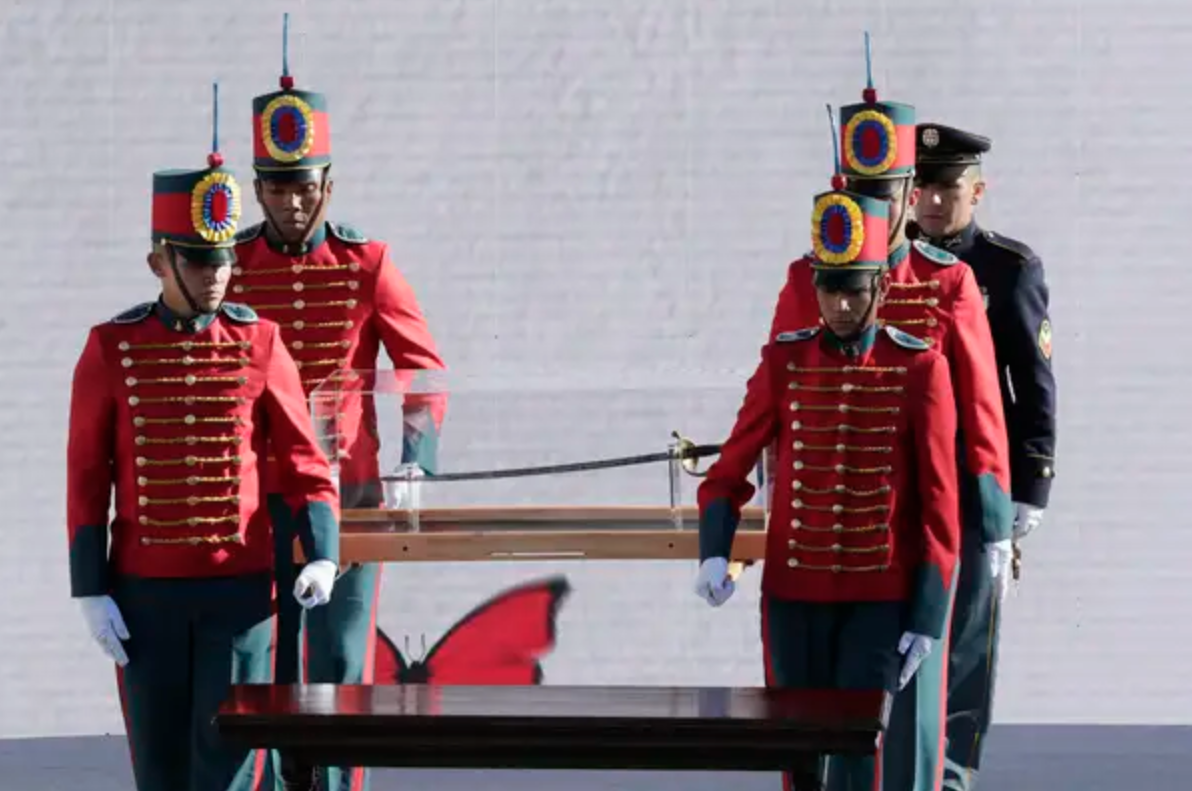The recent inauguration of Gustavo Petro as president of Colombia was a departure from that of his predecessors and was full of symbols that represent the change implied by the rise of the first leftist president in the country. A president who reached the government without the support of the traditional political classes. The speech was largely directed to the social bases that voted for him, and that during the ceremony, filled the Plaza de Bolivar and many other places in the country.
During the inauguration, the reference to the excluded majorities in one of the most unequal countries in Latin America was evident. In addition to the traditional greetings to high officials, heads of state, and diplomatic representations, Petro mentioned the names of citizens he met during the campaign, greeting especially a fisherman, a youth leader, a street vendor, an artisan, a coffee grower and a street sweeper.
Vice-President Francia Márquez, the first black woman to reach this position, also made symbolic gestures in her oath of office, in addition to swearing before God and the Colombian people, as is tradition, she did it before her ancestors and Colombians who have been historically excluded.
The public that attended the Inauguration Day expressed the diversity of the country’s population and that which has been denied and excluded by the ruling elites and violated by armed groups, but also by the State. And it is the racist and colonial look against ethnic peoples that exacerbated the armed conflict, as pointed out by the Truth Commission Report, whose recommendations Petro committed to abiding by last June when it was made public.
Petro’s first order as president – during the ceremony – was to exhibit the sword of Simón Bolívar, which the outgoing president, Iván Duque, had refused to do, despite the request of the incoming president. The sword was stolen in 1974 by the M-19 urban guerrilla, to which Petro belonged, and was returned only in 1991, after the peace process during the government of Virgilio Barco (1986-1990).
Also, in allusion to the Colombian conflict and the exclusion and political violence against the left in Colombia, Congresswoman María José Pizarro, daughter of Carlos Pizarro, the top commander of the M-19, who was assassinated in 1990 when he was a presidential candidate after the peace process, was called to place the presidential sash.
After four years in which the Duque government, not only consistently failed to advance with the implementation of the Peace Agreement signed in 2016 but also abandoned negotiations with armed groups and questioned the instances created by that agreement, Petro and his team have pushed the concept of Total Peace. Therefore, it is expected that peace will once again be a priority on the government agenda and the current government has announced its interest in dialogue with the different armed groups, specifically with the guerrilla National Liberation Army (ELN) and the Clan del Golfo. This narco-paramilitary group, with broad territorial control, has already announced a unilateral ceasefire after the new government takes office.
The appointment of Alvaro Leyva as foreign minister, who has been a mediator in different peace processes since the 1980s, indicates the new government’s interest in advancing the peace process. In addition, with respect to international relations, two major changes are expected. On the one hand, the rethinking of relations with the United States, which historically has gone through the anti-drug policy, which Petro has criticized for the death of thousands of Latin Americans; but also of Americans who die of drug overdoses. On the other hand, a greater rapprochement towards Latin American countries is expected, something Petro mentioned in different ways in his speech, alluding to the need for greater integration, as well as joint protection of the Amazon.
The Inauguration Day ceremony and the first days of the government reaffirm the promise of change considering social justice, peace and care for the environment. However, leaving behind the high inflation and unemployment rates that set record figures during Duque’s administration will not be easy. Faced with these expectations of various political and social sectors in the country, but also in Latin America, this government has the great challenge of distancing itself from its predecessors. And above all, not to disappoint the millions of Colombians who expect, as a sign from the top of one of the lamps of the Plaza de Bolivar said, “do not fail us”.
Translated from Spanish by Janaína Ruviaro da Silva












